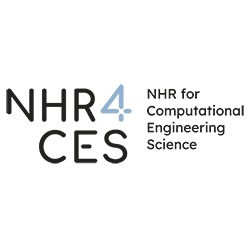Info
Big data and Machine Learning (ML) are driving comprehensive economic and social transformations and are rapidly becoming a core technology for scientific computing, with numerous opportunities to advance different research areas, such as combustion modeling. The combination of combustion applications with ML has been already applied to several Computational Fluid Dynamics (CFD) configurations and is a promising research direction with the potential to enable the advancement of so far unsolved problems, thanks to the ability of deep models to learn in a hierarchical manner with little to no need for prior knowledge. However, this approach presents a paradigm shift to change the focus of CFD from time-consuming feature detection to in-depth examinations of relevant features, enabling deeper insight into the physics involved in complex natural processes.
This training is designed to provide basic background on machine learning applications, highlighting some of the areas of the highest potential impact. Emerging ML areas that are promising for combustion modeling, such as reduced-order modeling advancements, versatile neural network architectures developments, as well as some potential limitations, will be discussed. The workshop aims to gather different research groups, providing a venue to exchange new ideas, discuss challenges, and expose this new research field to a broader community.

